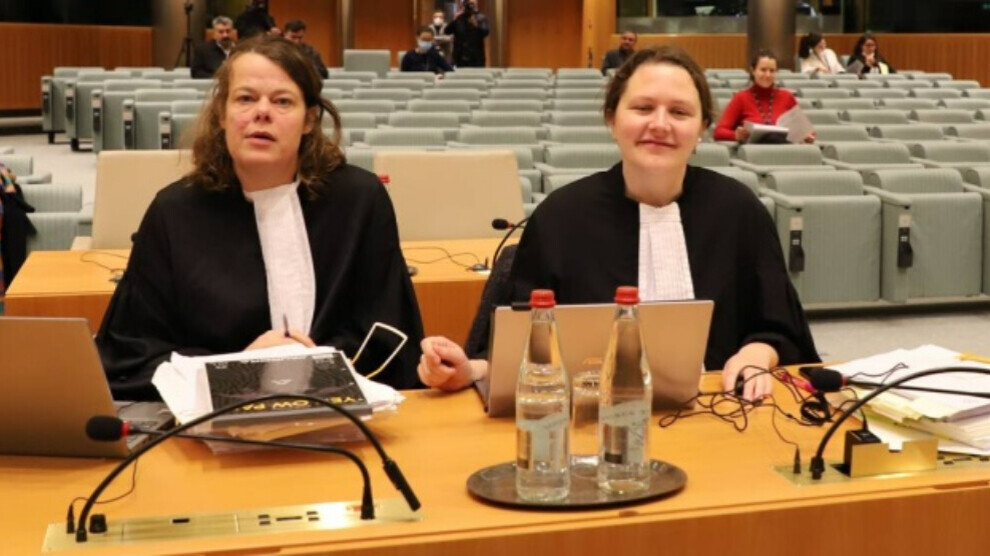European Court of Justice expected to announce the verdict on PKK ban within 7 months
Lawyer Tamara Bruma said that the European Court of Justice is expected to render its verdict on the PKK ban within 7 months.
Lawyer Tamara Bruma said that the European Court of Justice is expected to render its verdict on the PKK ban within 7 months.

Western countries have been ignoring the dirty war waged by the Turkish state in Kurdistan, including the concepts of annihilation/denial against the Kurdish people. They have been insisting on the policy of criminalization against the Kurdish Freedom Struggle. After Germany banned the PKK (Kurdistan Workers’ Party) on November 26, 1993, the PKK was included in the list of "terrorist organizations" in the US in 1997 and in the European Union in 2002.
The struggle for delisting the PKK has turned into a struggle for law and justice since 2014. PKK leaders Murat Karayılan and Duran Kalkan filed a lawsuit through their Dutch lawyers on May 1, 2014. The last hearing of the case was held at the European Court of Justice in Luxembourg on March 31, 2022.
PKK's lawyers Tamara Bruma and Marieke Van Eik answered ANF’s questions about possible future developments in the case.
'A COMPREHENSIVE DECISION MAY BE RENDERED'
“It has been a very long case and a lot has happened in the judicial legislation since the beginning of this case, so it was very important to discuss the latest situation. I was also particularly content that the court focused on the specific case of self-determination and how it dealt with the PKK. Therefore, the questions of the court surprised me in a positive way,” Bruma said.
Bruma noted that the European Court of Justice may announce its decision within 7 months, saying, “I expect the most important decision to come out of this case that would give the most detailed information on how they regard the PKK's inclusion on the list.”
'DIFFERENT FROM HAMAS AND LTTE CASES'
Bruma compared the cases of Hamas and the Liberation Tigers of Tamil Eelam (LTTE), which had previously applied to the European Court to be removed from the EU's list of "terrorist organizations", and the PKK ban.
“There are similarities in the arguments in those cases. But I also think there are very important differences. This case really shows that the Council of Europe is citing military actions to justify the 'risk of terrorism'. The main issue is that this is not enough. You cannot simply cite these military actions without explaining why they are considered terrorism. I'm waiting for the court to decide on this matter,” Bruma noted.
‘POST-2015 LISTS REMAIN CONTROVERSIAL’
Even though the court ruled in 2018 that the decision had been insufficiently reasoned, in 2019 the Council copied and pasted it and that's how the PKK remained on the list. To be honest, we are still debating whether these decisions taken in 2015 and later are fair.”
Marieke van Eik commented on whether the Council of Europe and the European Commission have to implement the decision of the European Court of Justice. “I think that this is what the judge asked the Council of the European Union regarding the measures taken in 2019 to keep the PKK on the list. The court told the Council that ‘there was the 2018 ruling where all decisions and regulations were cancelled. So, you really must do something to comply with the jurisdiction, and what you need to do is to make exactly the same decisions and to apply the regulations.' So, the Council agreed that what they needed to do was something different and that it needed important information from a higher court.”
RELATED NEWS: